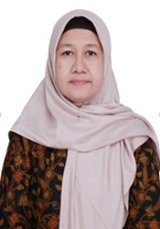Focus and Scope Publication Ethics Peer Review Process Publication Frequency Open Access Policy Archiving Copyright License Deposit Policy ORCID ID Policy Peer Reviewers Article Processing Charge PlagiarismOld Website
Editorial Policies
- Focus and Scope
- Section Policies
- Peer Review Process
- Publication Frequency
- Open Access Policy
- Archiving
- Publication Ethics
- Article Processing Charge
- Plagiarism Screening
Focus and Scope
Berkala Ilmiah Kimia Farmasi (BIKF) aims to facilitate interaction, discussion, and updating of research ideas in the fields of pharmacy, Pharmaceutical Chemistry, Medicinal Chemistry, Drug Development, Organic synthesis, Analytical chemistry, Pharmaceutical Technology, Pharmaceutical Microbiology and Biotechnology, Pharmacology and Toxicology, Nutraceutical / functional foods.
Section Policies
Original Articles
Article Review
COVER VOL 8 N01
Peer Review Process
All manuscripts received by BIKF will be peer-reviewed by at least two reviewers through the Open Journal System (OJS) based on their originality, contribution to the scientific field, coherence of analysis, grammar, and style. This journal uses the Double-Blind Peer Review Process policy framework, which means that the author's identity is kept secret from the reviewer, and vice versa, during the review process. The final decision regarding the acceptance, or vice versa, of the manuscript, will be taken by the editor in chief based on the comments of reviewers presented during the editorial board meeting. Scans for plagiarism cases contained in the manuscript will be carried out using the Turnitin software. In each manuscript, reviewers will judge from a substantial and technical aspect. The observers who collaborate with BIKF are experts in the field of pharmaceutical chemistry. They are experienced in managing prestigious journals and publications spread across the national level.
The editor or editorial board considers the feedback provided by peer reviewers and makes a decision. The following are the most common decisions:
• accepted without change (acceptance): the journal will publish the paper in its original form
• received with minor revisions (acceptance): the journal will publish the paper and ask the author to make minor corrections
• accepted after a major revision (conditional acceptance): the journal will publish the paper provided the author makes changes suggested by reviewers and/or editors
• revise and resubmit (conditional refusal): journals are willing to reconsider the paper in another round of decision-making after the author has made major changes
• rejected paper (outright rejection): the journal will not publish the paper or reconsider it even if the author makes major revisions
The reviewer's decision will be considered by the Editorial Board to determine the subsequent process of the manuscript.
• Revision Phase. After the manuscript is received with minor or major revision notation, it will be returned to the author with a summary review form. For manuscripts received with major revisions, authors are given 3-6 weeks to revise. Meanwhile, for manuscripts received with minor revisions, they are given 1 week for revision. When returning the revised manuscript, authors are required to fill out and attach a cover letter and author's statement.
• Final decision. At this stage, the manuscript will be re-evaluated by the Editorial Board to ensure that the author has revised it in response to reviewers' concerns. In this final decision, the manuscript can still be rejected if the author does not seriously make the necessary revisions.
• Correction (Proofread). After the manuscript is deemed accepted by the Editorial Board, the manuscript will undergo a proofreading process to maintain the quality of the language.
• Confirmation of publication. At this stage, the final layout of the manuscript will be sent back to the author to ensure that it matches the author's writing. At this stage, the writer can revise any typos found in the final manuscript. After confirmation from the author is given, the editor will process the manuscript for online publication on the website as well as for print publication. The author will receive the final version of the manuscript as a PDF file. EVIDENCE of all manuscripts will be provided to the appropriate authors. EVIDENCE must be read carefully, checked against typed manuscripts, and corrections can be returned within 7 days.
• Confirm rejection. If the manuscript is rejected, the writer will be notified by the Chief Editor with a statement of reasons for rejection. The author can appeal to the Chief Editor if he believes an unfair decision has been made that includes the author's reasons. The Editor in Chief will review and discuss the rationale with the Section Editor who is responsible for the manuscript, and then decide whether to accept or reject the appeal.
• Manuscript copyright. The author who submits the manuscript must understand and agree that the copyright of the article manuscript will be delegated/transferred to BERKALA SCIENTIFIC CHEMICAL PHARMACY (BIKF). A statement to release copyright to BERKALA ILMIAH KIMIA FARMASI (BIKF) is listed in the Author's Declaration Form. This work is licensed under a Creative Commons Attribution-ShareAlike 4.0 International License (CC BY-SA) under which Authors and Readers can copy and redistribute the material in any media or format, as well as rearrange, modify and build materials for any purpose, but they must provide appropriate credit (cite the article or content), provide a link to the license, and indicate any changes. If you mix, modify, or build upon the materials, you must distribute your contributions under the same license as the originals.
All review processes are conducted in double-blind peer review and are managed by editors in the Open Journal System (OJS). The article review process usually takes averages 15 weeks.
Publication Frequency
Berkala Ilmiah Kimia Farmasi (BIKF) will be published two times a year, in June and December
Open Access Policy
This journal provides immediate open access to its content by making researches freely available for public and supports a greater global exchange of knowledge.
This journal is open access journal which means that all content is freely available without charge to users or / institution. Users are allowed to read, download, copy, distribute, print, search, or link to full text articles in this journal without asking prior permission from the publisher or author. This is in accordance with Budapest Open Access Initiative.


.

BIKF by Unair is licensed under a Creative Commons Attribution-ShareAlike 4.0 International License.
Archiving
This journal utilizes the CLOCKSS system to create a distributed archiving system among participating libraries and permits those libraries to create permanent archives of the journal for purposes of preservation and restoration.
Publication Ethics
Berkala Ilmiah Kimia Farmasi (BIKF) is strongly committed to upholding the ethical standards of publication and takes all actions for any author who commits publication malpractice. All authors who submit their work to the BIKF journal for publication as original articles must prove that the submitted work is the contribution of the author and has not been copied or plagiarized in whole or in part from other works.
The authors acknowledge that they have disclosed any and any actual or potential conflicts of interest with their work or some of the benefits associated with it. In the same way, journals are committed to conducting objective and fair peer reviews of submitted publications and to prevent actual or potential conflicts of interest between editorial and review personnel and the material being reviewed. Any deviation from the rules defined above must be reported directly to the Chief Editor who is firmly committed to providing prompt resolution to any one of these types of problems.
All submitted works will be checked by anti-plagiarism software. Manuscripts detected plagiarism will be banned for further publication procedures. Authors who commit plagiarism and other ethical violations will be prohibited from publishing in BIKF. We are committed to ensuring that advertising, reprint, or other commercial revenue does not impact or influence editing decisions. In addition, the Department of Pharmacy, Faculty of Pharmacy, Airlangga University and the Editorial Board will help communicate with journals and/or other publishers that are useful and necessary. This statement is based on COPE's Guidelines for Best Practice for Journal Editors.
Article Processing Charge
a. Article Submission Fee: USD 0
No charge for manuscript submission
b. Article Processing Charge: USD 0
No charge for Article Processing Charge (APC)
Plagiarism Screening
Plagiarism is the act of when an author uses another work / author (copying someone's previous ideas, processes, results or words) without permission, credit, or acknowledgment. Berkala Ilmiah Kimia Farmasi (BIKF) strictly prohibits unethical acts of copying or plagiarism in any form. Authors must ensure that they have written completely original work. Berkala Ilmiah Kimia Farmasi (BIKF) considers plagiarism to be a serious offense and will blacklist writers who knowingly cite or use material from other works published without proper acknowledgment. Authors are advised to use a plagiarism checking program to check for similarities from previous publications before undergoing the review process or before being published. Each manuscript submitted to this journal will be screened for plagiarism using the Turnitin Program before submission or publication by the Berkala Ilmiah Kimia Farmasi (BIKF) Editor.
The following types of plagiarism are considered by Berkala Ilmiah Kimia Farmasi (BIKF):
1. Full Plagiarism: Content previously published without any changes to the text, ideas and grammar is considered full plagiarism. This involves presenting the text right from the source as one's own.
2. Partial plagiarism: If the content is a mixture of different sources, where the author has changed the text extensively, then it is known as partial plagiarism.
3. Self-Plagiarism: When an author reuses all or part of their previously published research, it is known as self-plagiarism. Complete self-plagiarism is the case when an author republishes his previously published work in a new journal.
If plagiarism is detected by editorial board members, reviewers, editors, etc., at any stage of the article process - before or after acceptance, during editing or at the proofing stage of the page, we will notify the authors and ask them to rewrite the content or cite references from where the content is taken. If more than 30% of the paper is detected plagiarism - the article can be rejected and it is notified to the author. If plagiarism is detected after publication, the Journal will conduct an investigation. If plagiarism is found, the authorized authority of the Berkala Ilmiah Kimia Farmasi (BIKF) Journal will contact the writing agency and funding agency. Papers containing plagiarism will be tagged on each PDF page. Depending on the level of plagiarism, the paper can also be officially withdrawn.























